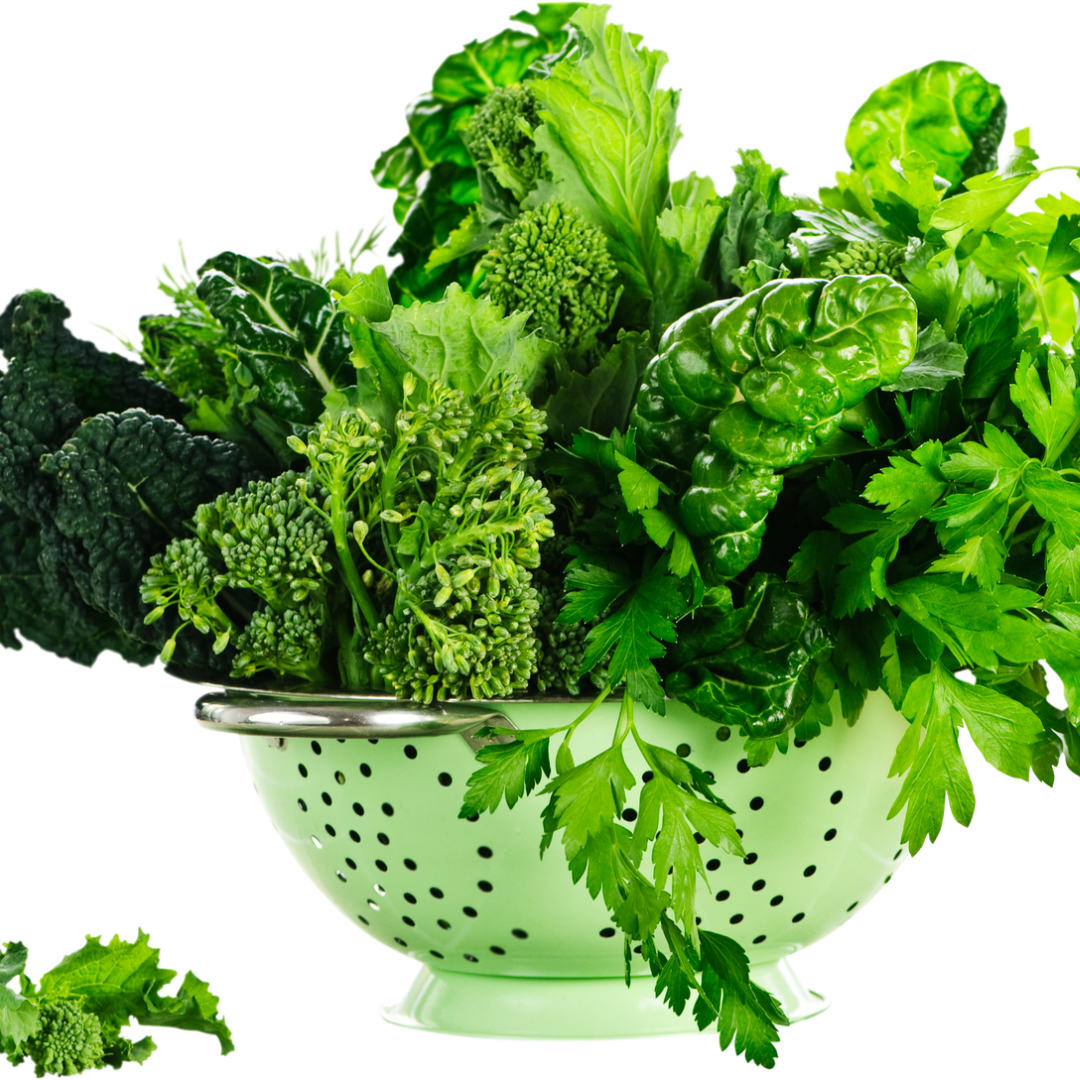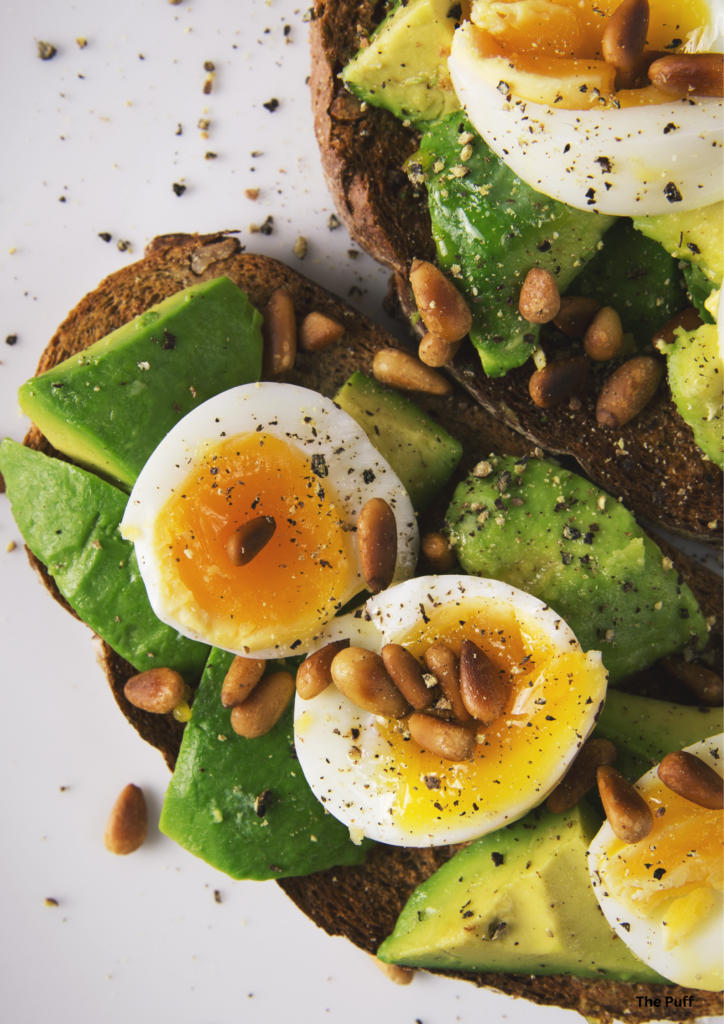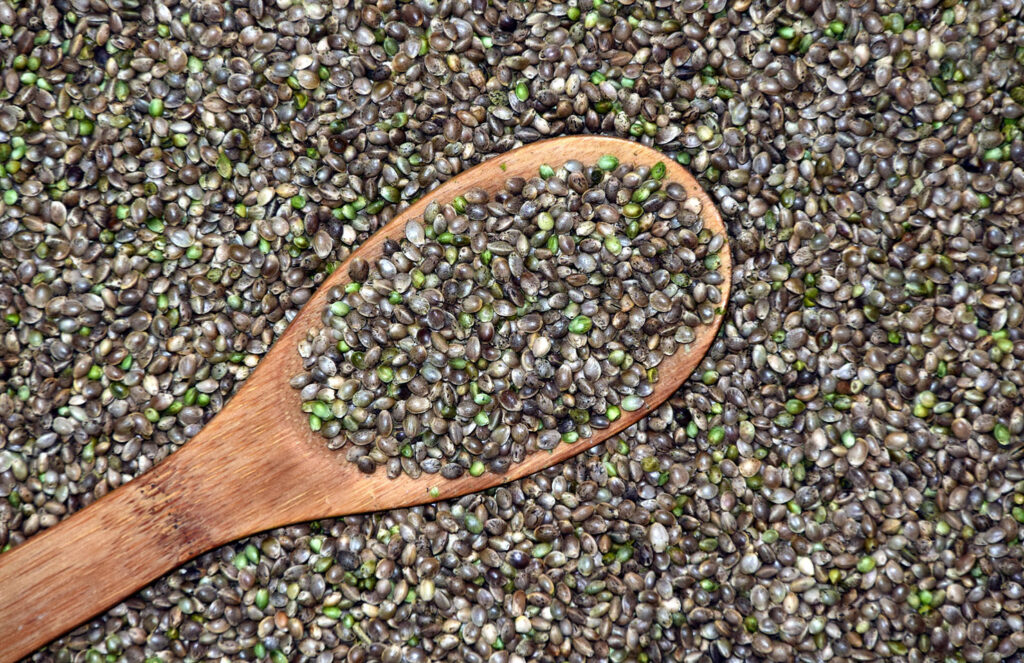Nourishing Your Nervous System From the Inside Out
Your nervous system is like the electrical wiring of your body. It sends and receives messages that control everything you do, from moving your muscles to remembering where you put your keys, from calming your heartbeat to helping you respond to danger.
But like any complex system, it needs the right care to function well. Stress, poor diet, lack of sleep, and environmental toxins can overload your nervous system, leaving you feeling wired yet tired, anxious, foggy-headed, or physically run down.

The good news is that food can be a powerful tool for restoring balance. God designed natural, whole foods to provide exactly the nutrients our bodies need to repair and protect our nerves. While food alone can’t erase every problem, a nutrient-rich diet can make your nervous system more resilient, improve mood stability, and enhance focus.
In this post, we’ll explore:
- How nutrition affects the nervous system
- Key nutrients your nerves need
- Whole foods that are rich in those nutrients
- Tips for incorporating them into your meals
- A sample 7-day nervous system support meal plan
This is not about quick fixes or trendy superfoods, it’s about building a way of eating that truly supports your God-given body for the long term.
How Nutrition Affects the Nervous System
The nervous system depends on constant communication between nerve cells (neurons). These messages are sent through electrical impulses and chemical messengers called neurotransmitters. Both require certain nutrients to work properly.
- Healthy fats keep the protective covering around your nerves (myelin sheath) strong.
- B vitamins help your body make neurotransmitters like serotonin (calm), dopamine (motivation), and acetylcholine (focus).
- Minerals like magnesium and potassium help regulate nerve signals and muscle contractions.
- Antioxidants protect nerve tissue from damage caused by stress, toxins, and inflammation.
When your diet lacks these key nutrients, your nervous system may struggle to send clear messages, leading to symptoms like brain fog, poor focus, irritability, or muscle weakness. Over time, deficiencies can increase your risk of conditions like neuropathy or mood disorders.
As 1 Corinthians 6:19–20 reminds us, our bodies are temples of the Holy Spirit. Caring for them, including through nourishing food, is part of our stewardship.

Key Nutrients for a Healthy Nervous System
1. Omega-3 Fatty Acids
- Support nerve cell membranes and reduce inflammation.
- Found in: salmon, sardines, flaxseeds, chia seeds, walnuts.
2. Magnesium
- Regulates nerve signal transmission and muscle relaxation.
- Found in: leafy greens, pumpkin seeds, almonds, black beans.
3. B Vitamins
(especially B1, B6, B12)
- Essential for neurotransmitter production and nerve repair.
- Found in: eggs, chicken, fish, whole grains, leafy greens.

4. Vitamin D
- Supports nerve growth and repair.
- Found in: salmon, egg yolks, fortified dairy, sunlight exposure.
5. Antioxidants (Vitamin C, E, polyphenols)
- Protect nerves from oxidative damage.
- Found in: berries, citrus fruits, nuts, dark chocolate.
6. Potassium & Sodium
- Maintain proper nerve signal transmission.
- Found in: bananas, sweet potatoes, coconut water.
7. Amino Acids
(from protein)
- Building blocks for neurotransmitters.
- Found in: poultry, fish, legumes, Greek yogurt.
Top Foods That Support the Nervous System
1. Fatty Fish
(salmon, mackerel, sardines)
- Rich in omega-3s for nerve health.
- Try grilled salmon with a side of roasted vegetables.

2. Leafy Greens
(spinach, kale, Swiss chard)
- Provide magnesium, folate, and antioxidants.
- Add to omelets, smoothies, or stir-fries.

3. Nuts & Seeds
(walnuts, almonds, pumpkin seeds, flaxseeds)
- Offer magnesium, healthy fats, and vitamin E.
- Snack on them or sprinkle over salads.

4. Eggs
- Contain choline for neurotransmitter function.
- Boil, scramble, or poach for breakfast.

5. Berries
(blueberries, strawberries, blackberries)
- Packed with antioxidants to protect nerve cells.
- Enjoy fresh or frozen in yogurt or oatmeal.

6. Legumes
(lentils, black beans, chickpeas)
- High in protein, magnesium, and B vitamins.
- Use in soups, salads, or stews.

7. Avocados
- Provide potassium and healthy fats.
- Spread on whole grain toast or add to salads.

8. Dark Chocolate (70% or higher)
- Contains flavonoids that improve blood flow to the brain.
- Enjoy a small square as a treat.

9. Whole Grains
(quinoa, oats, brown rice)
- Supply steady energy and B vitamins.
- Use as a base for bowls or breakfast porridge.

10. Herbal Teas
(chamomile, peppermint)
- Help calm the nervous system without caffeine.
- Sip in the morning or before bed.

Tips for Incorporating Nerve-Supportive Foods
- Meal Prep: Pre-chop vegetables and cook grains ahead of time.
- Mix & Match: Pair proteins with vegetables and healthy fats.
- Smoothies: Blend leafy greens, berries, flaxseeds, and almond milk for a quick breakfast.
- Snack Smart: Keep nuts, seeds, and fruit handy to avoid processed snacks.
- Season Wisely: Use herbs like turmeric and rosemary for anti-inflammatory benefits.
Sample 7-Day Nervous System Support Meal Plan
Day 1:
- Breakfast: Scrambled eggs with spinach and avocado.
- Lunch: Lentil soup with whole grain bread.
- Dinner: Grilled salmon with quinoa and roasted broccoli.
Day 2:
- Breakfast: Greek yogurt with berries and flaxseeds.
- Lunch: Chickpea salad with olive oil dressing.
- Dinner: Brown rice stir-fry with chicken and vegetables.
Day 3:
- Breakfast: Oatmeal with walnuts and blueberries.
- Lunch: Tuna salad wrap with leafy greens.
- Dinner: Lentil curry with sweet potatoes.
Day 4:
- Breakfast: Smoothie with spinach, banana, and chia seeds.
- Lunch: Black bean and avocado bowl.
- Dinner: Baked mackerel with roasted carrots and quinoa.
Day 5:
- Breakfast: Poached eggs on whole grain toast with tomato.
- Lunch: Quinoa salad with chickpeas and kale.
- Dinner: Grilled chicken with steamed green beans and brown rice.
Day 6:
- Breakfast: Greek yogurt with strawberries and pumpkin seeds.
- Lunch: Vegetable soup with lentils.
- Dinner: Salmon fillet with mashed sweet potatoes and asparagus.
Day 7:
- Breakfast: Oatmeal with almond butter and sliced banana.
- Lunch: Spinach salad with boiled eggs and walnuts.
- Dinner: Lentil and vegetable stew.
Faith-Based Encouragement
Eating to support your nervous system isn’t just about avoiding illness, it’s about thriving in the work God has called you to do. When your body is nourished, your mind is clearer, your emotions are steadier, and you’re more present for the people and tasks that matter most.
As 3 John 1:2 says: “Beloved, I pray that you may prosper in all things and be in health, just as your soul prospers.” Caring for your physical health through the foods you eat is a practical way to honor God and be a good steward of the life He’s given you.
Conclusion + 5-Day Food Challenge
For the next five days, aim to include at least three nerve-supportive foods in your meals each day.
Example: Salmon + leafy greens + berries, or eggs + avocado + whole grains.
Notice how your mood, energy, and focus shift when you consistently give your nervous system the nourishment it needs.
LATEST POSTS
- Longevity as a Lifestyle: How to Live Longer, Healthier, and More Vibrantly

- The Secret to Longevity: How to Live Longer, Healthier, and Happier

- The Ancient Head-to-Toe Self-Care Ritual for Longer Hair & Glowing Skin (Inspired by Timeless Beauty Traditions)

- Ancient Morning Rituals for Longevity: How to Start Your Day Like Our Ancestors

- The Ancient Longevity Blueprint: Timeless Secrets to Living Longer, Healthier, and Happier

- Why Ancient Wellness Practices Are Making a Comeback in 2025
JOIN THE NEWSLETTER
BROWSE FOR MORE
Leave a Reply